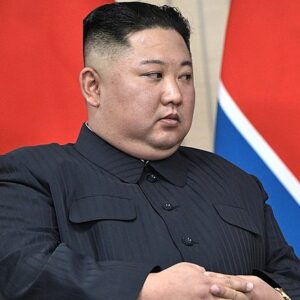North Korea is escalating the rhetoric in the run-up to two dates of huge importance in the confrontation of forces on the Korean Peninsula.
First, there’s the 110th anniversary on April 15 of the birth of the dynasty founder Kim Il-sung, grandfather of the current incumbent on the throne, Kim Jong-un. Then, on May 10, the conservative Yoon Suk-yeol takes charge as South Korea’s eighth elected president under the country’s “democracy constitution,” promulgated in 1987 after tremendous protests against military rule.
Each of these impending events may help to explain the outburst of North Korean missile tests along with vituperative shrieks from the North’s propaganda machine. Some of the rhetoric is really quite frightening, as when Kim Jong-un’s sister Yo-jong warns of the need to “reconsider a lot of things pertaining to South Korea” — and then brandishes the threat of nuclear war.
It’s easy to dismiss such statements as bluff and bluster we’ve heard before, but tests of ever more impressive North Korean missiles may be too alarming to ignore. And, if Kim Jong-un orders a seventh nuclear test, perhaps we should all wake up to what’s going on.
Nicholas Eberstadt of the American Enterprise Institute, a conservative think tank in Washington, has been holding forth on the dangers posed by North Korea for years. “By now it should be clear,” he wrote in the Wall Street Journal, “that Pyongyang fires off new weapons because their development is vital to its fundamental strategic goal of unifying the Korean Peninsula under Kim rule.”
That’s a warning that’s just as easy to ignore as another missile test. Sure, we’ve always known the dynastic ruler in Pyongyang would love to take over the South. That’s why Kim Il-sung started the Korean War in 1950. His son, Kim Jong-il, did not order a second Korean War but had the same fantasy of reunification. Toward that end, he ordered the North’s first two nuclear tests, setting the course for a program that proliferated under the third-generation ruler, Kim Jong-un, who ordered four more tests, most recently in September 2017.
Eberstadt derides the comforting views of analysts who love telling us “The Kim regime is trying to get our attention, for example, or that it is shoring up its domestic legitimacy.” Get real, he advises. “Pyongyang fires off new weapons because their development is vital to its fundamental strategic goal of unifying the Korean Peninsula under Kim rule.”
Having known Eberstadt for years, I may not agree with all that he says but find his views compelling. No, I don’t think North Korea can do much if anything with these nukes without the approval of Kim’s Chinese master, that is, China’s President Xi Jinping, and his North Korea “handlers.” Xi may want to extend Chinese power to all corners of Asia but is not yet ready for a military showdown with the United States.
Yes, I do think Kim would love finally to unify the Korean Peninsula under his own dynasty, destroying the forms of democracy that have taken root in South Korea over years of tumultuous protests, demonstrations and, yes, elections. He would in the process exact revenge for the failure of his grandfather’s invasion of the South and the years of poverty since then.
The nightmare of Korean War II is not going to happen as long as Kim is unable to persuade useful idiots in the South and the United States to approve a Korean War peace treaty calling for withdrawal of U.S. troops and dissolution of the U.S.-ROK alliance. The election of the realistic conservative Yoon Suk-yeol as president should make this goal impossible for at least five years.
Thus Eberstadt is on target when he states, “To achieve unconditional unification on its own terms, North Korea would first have to break the U.S.-South Korean military alliance.” The way to achieve that goal, he writes, is “through a nuclear showdown with America.” As Eberstadt explains, “The logic is simple: No weapons testing, no unification.”
That’s why we have to be concerned as North Korea revs up the testing. Kim Jong-un must be acutely aware, however, of the holy hell that would engulf his regime if he dared use them for real. We may expect the balance of terror that has prevailed over the Korean Peninsula for decades to govern the dynamics of the North-South confrontation.
That’s no reason, though, to shrug off North Korean testing. As Eberstadt warns, “If we don’t try to stop North Korea from becoming a greater threat, we will enter a world in which Pyongyang can credibly threaten the American homeland with nuclear missiles.”

